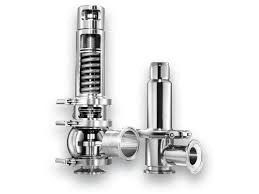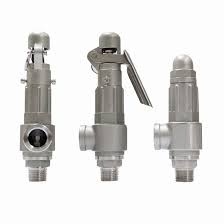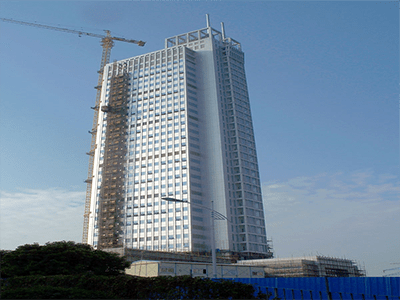Forged Steel Safety Valves – 5218 Series

The Application of Forged Steel Safety Valves
Forged Steel Safety Valves are a critical component in many industrial applications, ensuring the safety and reliability of high-pressure systems. Forged Steel Safety Valves Manufacturers like Cameron offer a range of high-quality products designed to withstand the most demanding environments. High-Pressure Forged Steel Safety Valves are particularly important in industries such as oil and gas, petrochemical, and power generation, where they play a vital role in protecting equipment and personnel. Forged Steel Safety Valves Suppliers provide a wide selection of options to meet the specific requirements of each application, ensuring the reliable performance and long-term durability of these essential safety devices.
What Are The Types Of Forged Steel Safety Valves?
Forged Steel Safety Valves come in a variety of types to meet the diverse needs of industrial applications. Some of the main types include:
1. Spring-Loaded Forged Steel Safety Valves: These are the most common type, using a spring mechanism to maintain a set pressure limit and open the valve when pressure exceeds that limit.
2. Pilot-Operated Forged Steel Safety Valves: These use a pilot valve to control the main valve, allowing for more precise pressure regulation and faster response times.
3. Bellows-Sealed Forged Steel Safety Valves: These use a metal bellows seal to provide a tight, leak-proof closure, making them suitable for high-temperature and hazardous applications.
4. Balanced Forged Steel Safety Valves: These have a balanced pressure design to minimize the effects of back pressure, allowing them to operate more consistently.
5. High-Pressure Forged Steel Safety Valves: Designed to handle pressures up to 20,000 PSI, these heavy-duty valves are critical in oil & gas, petrochemical, and power generation industries.
Forged Steel Safety Valves Suppliers like Cameron offer a wide selection of these valve types to match the specific requirements of each customer’s system and application. The choice depends on factors such as pressure, temperature, fluid properties, and installation requirements.
What Is Forged Steel Safety Valves?
Forged Steel Safety Valves are specialized valves designed to provide critical overpressure protection in high-pressure industrial systems. These valves are typically made from high-quality forged steel, which gives them exceptional strength and durability to withstand the demanding conditions found in applications such as oil and gas, petrochemical, power generation, and other heavy industries. The primary function of Forged Steel Safety Valves is to automatically open and release pressure when the system pressure exceeds a predetermined safe limit, preventing equipment damage, process disruptions, and potential catastrophic failures. Forged Steel Safety Valves Manufacturers and Forged Steel Safety Valves Suppliers offer a wide range of these critical safety devices, ensuring that industrial facilities have the appropriate overpressure protection for their specific needs.
How to Select the Right Forged Steel Safety Valves?
Selecting the appropriate Forged Steel Safety Valves for an industrial application requires careful consideration of several key factors. Forged Steel Safety Valves Manufacturers and Forged Steel Safety Valves Suppliers typically offer a range of options to meet different pressure, temperature, and flow requirements. When choosing the right valve, it is essential to evaluate the system’s operating conditions, including the maximum expected pressure, temperature, and flow rate, as well as the properties of the fluid being handled. Additionally, factors such as the valve’s size, materials of construction, and certifications or approvals may also be important considerations to ensure the valve’s compatibility and compliance with industry standards and regulations.
Features of Forged Steel Safety Valves
Durability: Forged steel construction provides exceptional strength and long-lasting performance, even in the most demanding industrial environments.
High-Pressure Capacity: Forged Steel Safety Valves are designed to handle pressures up to 20,000 PSI, making them suitable for high-pressure applications.
Temperature Resistance: The materials used in Forged Steel Safety Valves allow them to operate effectively across a wide range of temperatures, from cryogenic to high-heat conditions.
Reliable Overpressure Protection: These valves are engineered to automatically open and release pressure when the system exceeds a predetermined safe limit, safeguarding equipment and personnel.
Customizable Design: Forged Steel Safety Valves Manufacturers and Forged Steel Safety Valves Suppliers offer a variety of valve types and configurations to meet the specific requirements of each application.
Regulatory Compliance: Forged Steel Safety Valves are designed and manufactured to meet relevant industry standards and regulations, ensuring safety and quality.
Advantages and Disadvantages of Forged Steel Safety Valves
Advantages of Forged Steel Safety Valves:
Strength and Durability: Forged steel construction provides exceptional strength and resistance to wear, ensuring long-term reliability.
High-Pressure Capability: Able to handle pressures up to 20,000 PSI, making them suitable for demanding industrial applications.
Temperature Tolerance: Can operate effectively in a wide range of temperatures, from cryogenic to high-heat conditions.
Reliable Overpressure Protection: Designed to automatically release pressure when the system exceeds safe limits, safeguarding equipment and personnel.
Customizable Design: Available in various types and configurations to meet specific application requirements.
Regulatory Compliance: Manufactured to meet relevant industry standards and regulations.
Disadvantages of Forged Steel Safety Valves:
Higher Cost: Forged steel construction typically results in a higher initial purchase price compared to some alternative materials.
Weight: Forged steel valves are generally heavier than their cast or fabricated counterparts, which can make installation and handling more challenging.
Lead Time: The manufacturing process for forged steel valves may result in longer lead times compared to some other valve types.

The Specifications of Forged Steel Safety Valves
| Specification | Details |
|---|---|
| Type | Spring-Loaded Forged Steel Safety Valve |
| Ball Material | 316 Stainless Steel |
| Attachment Type | Threaded |
| Thread Standard | NPT |
| Thread Size | 1/2″ |
| Body Material | Forged Carbon Steel |
| Safe for Use With | Steam, Gases, Liquids |
| Handle Type | Lever |
| Handle Material | Carbon Steel |
| Maximum Working Pressure | 3,000 psi |
| Maximum Working Pressure | 207 bar |
| Operating Pressure | 2,500 psi |
The Installation Steps for Forged Steel Safety Valves
1. Inspect the Valve: Carefully inspect the valve’s appearance and performance to ensure it is undamaged before installation.
2. Confirm the Dimensions: Measure the pipeline dimensions to ensure the Forged Steel Safety Valve size matches the pipeline.
3. Prepare the Installation Location: Select a suitable installation location, ensuring there is enough space around the valve for operation and maintenance.
4. Install the Bracket: If necessary, install a suitable bracket to support the valve’s weight and ensure a stable installation.
5. Connect the Pipework: Use appropriate pipe fittings to reliably connect the valve to the pipeline, ensuring a tight seal.
6. Calibrate the Pressure: Adjust the valve’s opening pressure according to the system requirements to ensure it activates at the set pressure.
7. Check for Leaks: Carefully inspect all valve connections for any leaks.
8. Test the Operation: Slowly increase the pressure to test the valve’s movement and sealing performance, ensuring it can function properly.
9. Record the Parameters: Record the valve’s key parameters, such as the model and pressure settings, for future maintenance.
10. Put into Service: Once confirmed, the Forged Steel Safety Valve can be put into regular service.
The Operation Theory of Forged Steel Safety Valves
Forged Steel Safety Valves operate on the principle of pressure-activated relief. When the system pressure reaches the valve’s predetermined set point, the valve’s spring-loaded mechanism opens, allowing the excess pressure to be safely released. This helps to protect the equipment and personnel from potentially dangerous overpressure conditions. The forged steel construction provides the strength and durability required to withstand the high pressures and temperatures commonly encountered in industrial applications.
Forged Steel Safety Valves Technical Specifications
- Type: Spring-Loaded Forged Steel Safety Valve
- Ball Material: 316 Stainless Steel
- Attachment Type: Threaded
- Thread Standard: NPT
- Thread Size: 1/2″
- Body Material: Forged Carbon Steel
- Safe for Use With: Steam, Gases, Liquids
- Handle Type: Lever
- Handle Material: Carbon Steel
- Maximum Working Pressure: 3,000 psi (207 bar)
- Operating Pressure: 2,500 psi
Forged Steel Safety Valves Market Trends
The global Forged Steel Safety Valves market is experiencing steady growth, driven by the increasing demand from various industries, such as oil and gas, power generation, and chemical processing. Factors contributing to this trend include:
- Rising need for reliable overpressure protection in high-pressure industrial applications
- Stricter safety regulations and compliance requirements
- Growing investment in infrastructure and industrial development, particularly in developing regions
- Technological advancements in valve design and materials, improving performance and durability
